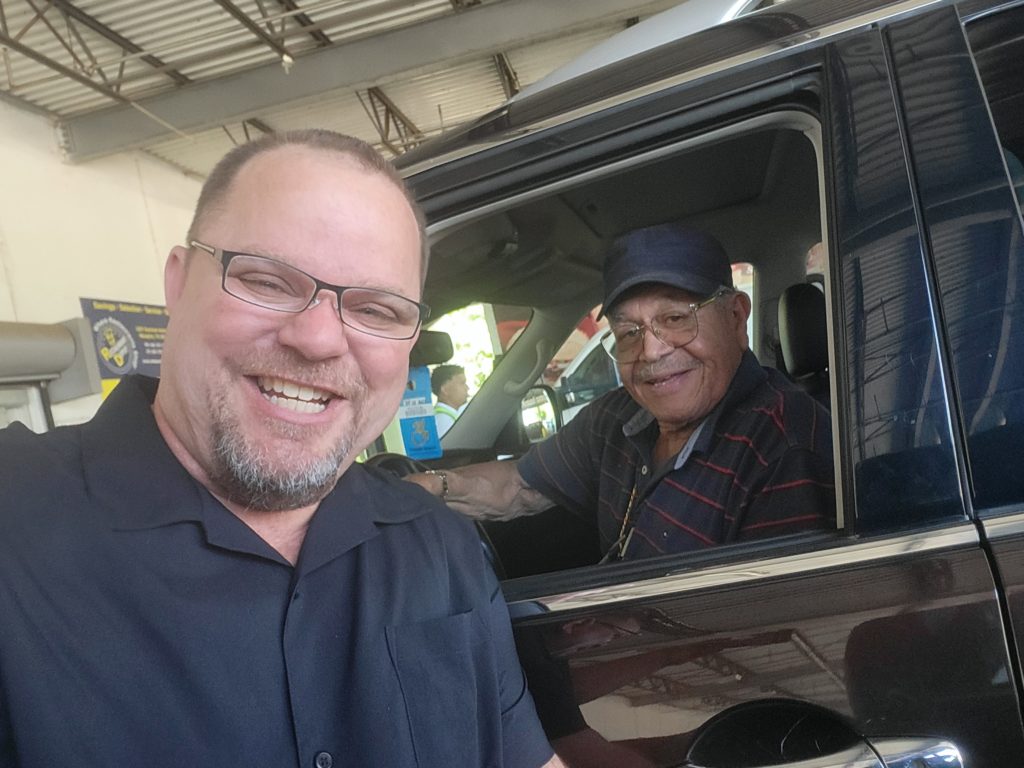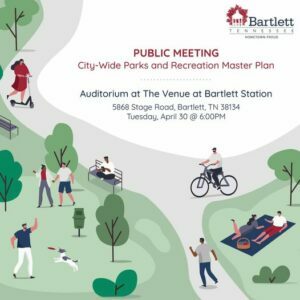
Torrey Shoaff may be the poster child, so to speak, for the impact that investment firms are having on the local housing market.
Shoaff, a veteran with 10 years of service and owner of Wally Hatchet’s restaurant on Summer Avenue, was outbid five times for different homes he was trying to buy in Bartlett. He had to move into an RV parked at Agricenter International while his frustrating search for a home dragged on, but eventually decided he just wouldn’t be able to get a Bartlett house, so he bought one in Eads in Fayette County.
“It’s gotten really out of hand,” he told the Board of Mayor and Aldermen on May 24. “My kitchen manager, who I pay quite a bit of money to, also grew up here and graduated from high school here, and he can’t afford to live here. And that really gets my gut.”
After talking with elected officials and researching the market, he found that investment firms in Singapore are the largest residential property owners in Bartlett, followed by investors in California and Arizona.
Shoaff wants the board of aldermen to pass an ordinance limiting the number of rental homes that any individual or entity can have, and charge a permit fee for every rental so the city can collect revenue off these business enterprises and better track outside investment firms that may not be maintaining their properties.
Shoaff and his wife sold their 3,500-square-foot home in Arlington in one day and were looking to downsize to about 2,200 square feet in Bartlett since three of their children are now in college. In his best try before settling for a home in Eads/Hickory Withe, Shoaff bid $30,000 above the asking price and still got outbid for a Bartlett house.
Shirley Jackson, a Bartlett City Schools Board member, said her homeowners association (HOA) is dealing a rental problem as six of the 148 homes in her Bartlett neighborhood are now rentals.
“Our homeowners association is concerned about that, and we are looking for guidance from you (aldermen) as to how you might be able to help us,” said Jackson, who lives at 6127 Yorkhill Drive.
There are legal issues when trying to place limits on the buying and selling of private property, however. The city does not have the right to tell property owners who they can and cannot sell property to.
Circling the HOAs
It is likely Alderman David Parsons will introduce a resolution at the June 14 board meeting, but it may not have the teeth that Shoaff and others are suggesting.
Parsons and Kevin Quinn are among the alderman who have researched the issue for many months, and the mayor and board have been consulting with their attorney, Edward McKinney, on possible actions the board could take.
Parsons said he will likely introduce a resolution that encourages not only homeownership, but asks residents who don’t have an HOA to create one so they can establish covenants and restrictions for their subdivisions. It also will encourage existing HOAs to revisit their covenants and consider making them more strict.
Parsons said he has spoken to Shoaff and others who have similar complaints.
“I’ve heard from a lot of people who say these cash-and-carry investors are just outbidding them for homes,” Parsons said.
There are many active investment firms in Shelby County. In any given week, property transfer records show 10 percent or more of home sales in and around Bartlett may go to one of these firms.
The resolution will emphasize that homeowners can do something to address this issue by establishing HOAs or strengthening HOA covenants, such as requiring homes in their subdivisions to be owner-occupied.
“I’m excited that we’re having this conversation,” Parsons said. “If we can get the homeowners associations to be more active, and ask more questions … and the homeowners associations do what they can do, and the city does what it can do, collaboratively, I think we can start to turn the tide.”
Parsons said it is a national problem, citing a recent Wall Street Journal article that showed 25 percent of home sales in Atlanta in the first quarter of 2022 were investor purchases, and 16 percent of Nashville area home sales were.
But it’s not just investment firms that are impacting the housing market. The low inventory of homes for sale in Shelby County is contributing to rising prices and the bidding wars being waged.
“I know several people who own two, three, four homes and they don’t want any restrictions on renting,” Quinn said, noting that not all investment buyers are from out of state.
According to research he has done, Parsons said the new generation of younger adults may wait until they are 30 before making a major purchase like a new car or a home.
“This generation just looks at homeownership a little bit differently and I think it’s created a bigger rental market,” Parsons said. “They view risk differently than the baby boomers did.”
To make meaningful change now, Quinn said, homeowners need to stand firm and not sell to investment groups.
“I’ve been working on legally viable solutions to this situation since last fall,” Quinn said. “My goal is to have an actual solution rather than just a resolution that only pays lip service towards the problem. I’ve talked to city managers and officials from all around the nation who share our struggles and frustrations with corporate ownership of housing. There are some creative government solutions, but it will take some legal finagling to ensure that we don’t end up in court.”
Quinn said one possibility is to change all city zoning and adopt long-term rental restrictions/requirements in newly formed zones. Other government solutions that are not currently legal in Tennessee include establishing a flat percentage of allowable rentals per block and requiring permits for long-term rentals, and then putting a moratorium on issuing those permits.
“Something the city can do now is to create financial incentives for single family home buyers to occupy the house,” he said. “One example of that could be in the form of tax rebates. We also need to keep Code Enforcement focused on the properties and fine the companies for any violations.”
Both Quinn and Parsons talked about possible restrictions the city could impose, but the legality of such restrictions and enforcement become magnified.
If the city were to label investment firms renting homes as business enterprises in order to assess them fees for renting, for example, the city would essentially be violating its own zoning laws by legitimizing commercial uses in residential zones. And then what other commercial uses could those converted properties become down the road?
And as Parsons noted, if these rental firms are charged fees, they will just increase rental prices accordingly.
But whether it is a large investment group based in California or a local entrepreneur juggling 10 properties, there is a strong demand for rental properties in Bartlett.
Posts like these on Facebook and other social media sites are common:
“Rental houses available? My brother in law & his wife are finally here & are searching for something in Bartlett. Available asap? 2-3 bedroom.”
This particular post on May 24 received 16 responses, each suggesting an available rental. The costs quoted in two responses for a 3-bedroom, 2-bath home were $1,800 and $1,850 a month. That’s about par for housing rentals in Bartlett right now depending on location, size and amenities.
“That’s why we are looking at different types of housing options, as we did with Union Depot,” Mayor Keith McDonald said. “We just have to have more options.”




